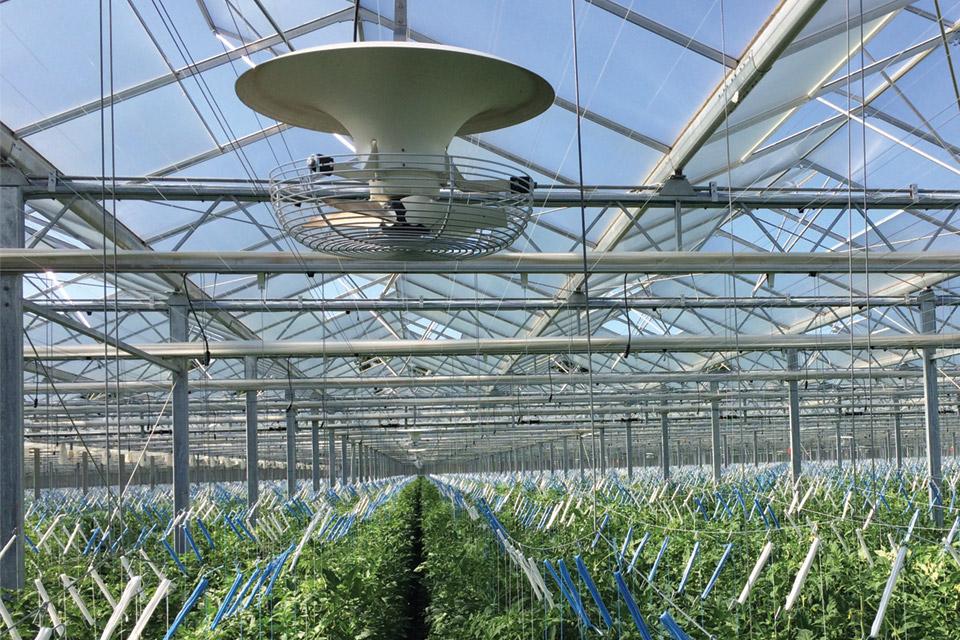Climate control
Yield indexes in greenhouse complexes are determined by wide range of factors. The microclimate in which vegetables develop and subsequently ripen is of extreme importance.
In this context, by the microclimate we mean a certain level of carbon dioxide, temperature conditions, humidity conditions and lighting. The plant collects carbon dioxide (CO2) from the air, which in combination with moisture creates carbohydrates and oxygen. The plant transforms part of the carbohydrates from photosynthesis into free energy for life support. The remaining carbohydrates turn into plant tissue.
The transpiration process also contributes to the optimization of plants metabolism. Leaf transpiration controls water and food intake, as well as plant cooling. The transpiration process also depends significantly on light intensity, temperature and humidity conditions.
By ensuring ideal climatic conditions for plants, agricultural technologists actually control the process of plant development. Agricultural Projects International FZE offers integrated automated climate control solutions for greenhouse complexes, which suggest the possibility not only of constant monitoring and of analysis of the greenhouse microclimate, but also of automatic adjustment of the parameters of heating, ventilation, and irrigation systems.
Modern climate control systems minimize time expenditure of the agronomists and mitigate the impact of the human factor.

